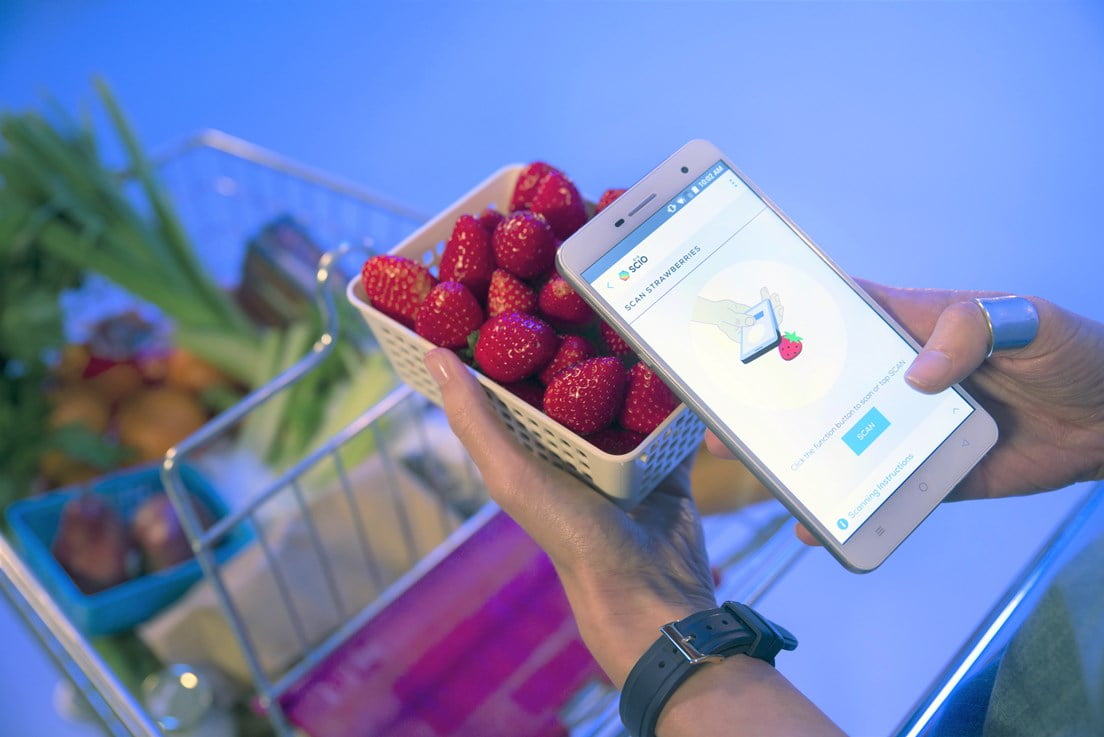From wearable technologies to artificial intelligence, the Israeli delegation to CES 2017 is showcasing a wide set of solutions for the consumer electronics industry, some of which are truly game-changing.
According to the Israeli Ministry of Economy and Industry, the Startup Nation is home to some 500 consumer electronics companies in a range of fields: mobile devices, smart homes and smart TVs, video and gaming, automotive, wearables, Internet of Things and more.
Overall, this year’s Consumer Electronics Show, held in Las Vegas this week, is showcasing 3,800 exhibiting companies, including manufacturers, developers and suppliers of consumer technology systems from 150 countries. Roughly 165,000 people are attending this year’s show, which runs January 5-8.
CES has served as the proving ground for innovators and breakthrough technologies, and is considered the global stage where next-generation innovations are introduced to the marketplace. The largest tradeshow of its kind, CES has been produced by the Consumer Technology Association for the past 50 years.
Here are some of the coolest, up-and-coming Israeli technologies at the conference:
SCiO: A molecular sensor built into a smartphone
Changhong, one of China’s largest consumer electronics makers, and Israeli startup Consumer Physics, maker of the SCiO handheld molecular sensor, unveiled the world’s first smartphone with a built-in material sensor at CES this week.
This smartphone will allow consumers to scan materials and immediately receive actionable insights based on their underlying chemical composition, such as the nutritional value of foods, alcohol content of drinks, purity of cooking oils, and identification of raw materials used in manufacturing.
This capability has the potential to change smartphones forever, just like the integration of cameras and GPS units have over the past decade. The smartphone is set to launch later this year.
Founded in 2011 by Damian Goldring and Dror Sharon, Consumer Physics has so far raised $11.5 million from investors. Backed by Israeli entrepreneur Dov Moran (who invented the USB drive), Khosla Ventures and Israeli crowd-funding firm OurCrowd, Consumer Physics could very well change the way we interact with the world.
According to Jon Medved, founder and CEO of OurCrowd, Consumer Physics “truly brought science fiction to life. This new integration of their SCiO technology into the Changhong H2 phone will unleash a tsunami of applications that will allow users to better know and understand the world around us and to lead more healthy and productive lives.”
Beyond Verbal: Deciphering people’s moods
Israeli company Beyond Verbal‘s cutting-edge, artificially intelligent technology deciphers people’s moods, emotional characteristics, and attitudes in real-time.
Having already analyzed millions of voice samples from 170 countries, Beyond Verbal’s technology decodes human vocal intonations into their underlying emotions.
The company’s technology can be applied in mobile apps, voice assistants, wearables, and a variety of other settings. Its software can also be integrated into existing products, helping devices and applications envision not just what users type, but also how they feel and what they mean.
SEE ALSO: Beyond Verbal’s Technology Interprets Trump’s Real Emotions
Founded in 2012 by Yoav Hoshen and Yuval Mor, the company has already been granted several patents and raised $10 million.
TytoCare: Telemedicine at your fingertips
Sign up for our free weekly newsletter
SubscribeImagine you could skip the waiting time for a doctor’s appointment and also save the money you would have paid for the visit.
Israeli startup TytoCare has developed an innovative hand-held instrument, called Tyto, which can detect and classify common diseases such as the flu or ear infections. The kit includes a stethoscope, an otoscope and a computer-vision camera that helps the user diagnose the problem. In case a doctor is needed, the device can also be used to connect with a specialist for a remote consultation.
Founded by Dedi Gilad and Ofer Tzadik in 2012, the company has raised $18.5 million so far, with major drugstore chain Walgreens among its investors.
Radiomize: Reducing car accidents
We all know texting while driving is dangerous, yet we still do it – we just can’t help ourselves. But safety doesn’t need to be comprised.
Founded in April 2015 by Shmuel Kaz and Gilad Landau, Israeli startup Radiomize works to reduce car accidents. Radiomize has created a steering wheel cover embedded with text-to-speech technology and a matching mobile app. This patented gadget fits most vehicles, allowing drivers to control their phones without taking their focus off the road. According to Radiomize, its technology can reduce distracted driving by 23 percent.
And, it can even help you choose your music without taking your eyes off the road.
Digisense: Monitoring infants and the elderly
Founded by Eyall Abir in 2010, Digisense has developed a wearable, real-time monitoring solution for babies and the elderly, designed to respond to the needs of infants and geriatric patients.
For use at home, hospitals or nursing homes, the device can be attached (using Velcro) to any diaper or cloth. This Internet of Things (IoT) device is noninvasive and provides data through an app. It can even tell you when the diaper is wet and the baby needs changing.
Mobileye’s most complex autonomous drive
As opposed to the budding startups featured above, Mobileye has been around for nearly two decades (founded in 1999 by Ziv Aviram and Prof. Amnon Shashua); but its newest technologies being showcased at CES this week simply cannot be ignored.
Delphi Automotive and Israeli company Mobileye are presenting their cutting-edge driverless car at the show. Mobileye, which develops vision-based driver assistance systems that help prevent collisions, has contributed its innovative autonomous driving technologies to Delphi’s car.
Last month, the companies said they would hold the “most complex automated drive ever publicly demonstrated” in Las Vegas. The drive will tackle everyday driving challenges like highway mergers, congested city streets with pedestrians, cyclists and a tunnel.
Additionally, Mobileye, BMW and Intel announced at CES today that they will have 40 autonomous test vehicles on the roads by the second half of 2017.
Photos and videos: Courtesy of the companies
Related posts

Editors’ & Readers’ Choice: 10 Favorite NoCamels Articles

Forward Facing: What Does The Future Hold For Israeli High-Tech?

Impact Innovation: Israeli Startups That Could Shape Our Future





Facebook comments